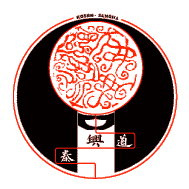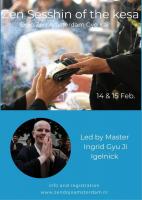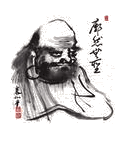L'Association Bouddhiste Zen Deshimaru, ci-après ABZD,dont le siège social est à Douch (34), souhaite vous informer des mesures mises en œuvre en vue de
protéger vos données personnelles et votre vie privée
conformément à la législation en vigueur et plus
particulièrement aux dispositions de la loi du 6 janvier 1978
dite « Informatique et libertés » modifiée,
du Règlement européen 2016/679 ainsi que les
recommandations émanant de la CNIL (ci-après « la
Législation en vigueur »).
En
application de la Législation en vigueur vous disposez d’un
droit d’accès, d’opposition, de rectification, de
suppression et à la limitation des traitements sur les données
personnelles vous concernant. Vous disposez également d'un
droit de définir des directives relatives au sort de vos
données personnelles après votre décès. Ces
droits peuvent s’exercer par courrier postal à l’adresse
suivante : Temple Zen Yujo Nyusanji, ABZD Route du Hameau de Douch 34610 Rosis
en joignant à votre demande
une copie de votre pièce d’identité (qui ne sera
pas conservée par l'ABZD et
pourra soit être détruite, soit vous être
restituée à votre convenance). Pour des raisons de
sécurité, votre droit à la portabilité de
vos données personnelles ne pourra être exercé
que dans nos locaux en votre présence et sur présentation
d’un justificatif d’identité en cours de
validité. Vous disposez du droit d'introduire une réclamation
auprès de la CNIL si vous considérez que nous ne
respectons pas les règlementations applicables en matière
de données personnelles.
En
tant que responsable du traitement de vos données
personnelles, l'ABZD souhaite
répondre à vos préoccupations relatives à
la confidentialité des informations que vous nous transmettez
par tous modes de communication notamment : site(s)
internet édités et exploités par l'ABZD,
communications téléphoniques, réseaux sociaux (ci-après « les Canaux
de Communication ») en vue de vous proposer nos activités.
Lorsque
vous nous communiquez vos données personnelles, vous nous
autorisez à les utiliser, à les analyser, à les
conserver.
En nous communiquant des données personnelles via les Canaux
de Communication, vous acceptez cette politique. Notre politique est
susceptible d’être modifiée afin de tenir compte
des évolutions de la Législation en vigueur en matière
de données personnelles. Nous vous tiendrons informé de
tout changement effectué.
Données personnelles transmises à l'ABZD
- Données relatives à vos informations personnelles
Il
s’agit d’informations vous concernant en tant que
personne physique ou morale, que vous avez volontairement
communiquées à l'ABZD via
les différents Canaux de Communication et qui sont
utiles à la réservation
de vos activités au sein de l'association (telles que notamment vos nom, prénom, adresse
électronique, numéro de téléphone,
adresse postale … ).
Nous
vous informons que les informations qui doivent être
obligatoirement fournies à l'ABZD
sont signalées de
manière visible par un astérisque sur notre site
internet (ci-après, « le Site »). Les
informations non signalées par un astérisque sont
facultatives.
- Données relatives aux Mineurs
Les
différents Canaux de Communication ne sont, en principe, pas
destinés à un usage par des mineurs sans autorisation
de leurs parents ou responsable légal. Un mineur d’au
moins 16 ans peut solliciter une inscription et fournir les données personnelles
nécessaires à cette finalité.
L'ABZD
s’efforce
raisonnablement de vérifier que le consentement est donné
ou autorisé par le titulaire de l’autorité
parentale à l’égard du mineur, compte tenu des
moyens technologiques disponibles.
L'ABZD
est amené à
collecter des données de catégorie particulière
telles que des données de santé (handicap, allergie ou
conditions particulières) et de manière indirecte de
connaître la religion, les croyances ou les convictions
personnelles des personnes concernées bien que cette collecte
ne soit jamais directe et ne se fasse que par déduction ( cas
du régime alimentaire). Ces données sont uniquement
collectées pour les besoins de l’organisation des stages de la personne concernée et ne seront
utilisées d’aucune autre manière.
Données
relatives à votre navigation sur le Site (cookies)
Lors
de vos navigations sur le site internet de l'ABZD
des cookies temporaires
peuvent être enregistrés sur votre ordinateur.
Un
« cookie », ou traceur, est un fichier texte
qui permet à l'ABZD d’identifier
l’appareil dans lequel il est enregistré pendant la
durée de validité ou d’enregistrement du cookie.
Au
cours de votre navigation sur le Site, l'ABZD
peut enregistrer, dans un
espace dédié du disque dur de votre appareil
(ordinateur, tablette ou smartphone), un ou plusieurs « cookie
» par l’intermédiaire du navigateur internet que
vous utilisez et en fonction des paramètres que vous avez
sélectionnés sur celui-ci en matière de cookies.
Ces
informations sont notamment :
- Le type de navigateur Internet que vous utilisez ;
-
Le type de système et dispositif d'exploitation que vous utilisez pour accéder au Service ;
- Le nom de domaine de votre fournisseur de services Internet ;
- La page Internet dont vous provenez ;
- Le pays de résidence et votre langue ;
- Les pages et options que vous visitez et auxquelles vous accédez sur nos Sites.
Lors
de votre première visite sur notre Site, dès lors que
l'ABZD envisagera
de placer un cookie sur votre appareil, une bannière
d’information s’affichera en bas de page. En poursuivant
votre navigation sur le Site ou après avoir cliqué sur
« J’accepte », vous consentez
expressément à ce que l'ABZD
puisse déposer des
cookies sur votre appareil (cookies de session, certains
cookies de mesure d'audience, les cookies des réseaux sociaux
générés notamment par leurs boutons de partage
lorsqu'ils collectent des données personnelles). Si vous
poursuivez votre navigation sur le site, des cookies pourront être
déposés sur votre poste. Le bandeau restera affiché
tant que vous n’avez pas poursuivi la navigation, c'est-à-dire
tant que vous ne vous êtes pas rendue sur une autre page du
Site ou n'avait pas cliqué sur un élément du
Site. Si vous ne souhaitez pas accepter tout ou partie des cookies,
nous vous recommandons de cliquer sur le lien « En savoir
plus » sur le bandeau, et de suivre les instructions
détaillées vous permettant de gérez les cookies
via le paramétrage de votre navigateur.
Les
cookies ne génèrent ni ne transmettent de virus
informatiques susceptibles d’infecter votre appareil, ils ne
sont lisibles et reconnaissables que par leur émetteur.
Vous
avez la possibilité de modifier à tout moment les
paramètres relatifs aux cookies. Vous trouverez ci-après
des informations concernant les cookies et les différentes
manières de gérer les paramètres liés aux
cookies sur votre navigateur.
Le
délai de validité du consentement au dépôt
des Cookies est de 13 mois. À l'expiration de ce délai,
nous solliciterons de nouveau votre consentement.
Si
vous souhaitez en savoir plus sur les cookies et leur utilisation,
vous pouvez consulter le dossier de la Commission Nationale de
l’Informatique et des Libertés à l’adresse
suivante : www.cnil.fr
,
rubrique « Cookies : les outils pour les maitriser ».
L'ABZD
peut être amenée
à utiliser les types de cookies suivants (bannière en
bas de page):
- Cookies de gestion de session
- Cookies de mesure d’audience (cookies statistiques)
- Cookies nécessaires à certaines fonctionnalités optionnelles
- Cookies relatifs à la publicité ciblée
- Cookies des réseaux sociaux générés notamment par leurs boutons de partage lorsqu'ils collectent des données personnelles
Les
cookies de gestion de session sont indispensables au bon
fonctionnement du Site. Les refuser pourra entrainer un
ralentissement et /ou un dysfonctionnement du Site.
Par
l’analyse de la manière dont vous utilisez le Site,
l'ABZD peut
vous proposer une meilleure navigation à l’effet de
répondre de manière appropriée à vos
attentes et également identifier les éventuels
problèmes que vous rencontrez afin d’y apporter des
solutions rapides.
L'ABZD
est susceptible d’intégrer
sur son Site des applications informatiques de tiers vous permettant
de partager des contenus du Site avec d’autres personnes. C’est
notamment le cas du bouton « Partager » ou
« J’aime » sur Facebook, Pinterest,
Twitter, Instagram, YouTube ou encore LinkedIn. Le réseau
social concerné est alors susceptible de vous identifier et
d’enregistrer des cookies sur vos appareils. Nous vous invitons
à consulter leur politique de confidentialité.
<
Vous avez la possibilité de
vous opposer simplement aux cookies via les procédures
détaillées au c) ci-dessous.
Vos choix concernant les cookies
Vous
avez la possibilité de modifier à tout moment les
paramètres de votre navigateur internet afin d’accepter,
paramétrer ou, au contraire, refuser les cookies. Plusieurs
options s’offrent à vous : accepter tous les
cookies, être averti lorsqu’un cookie est enregistré,
ou refuser systématiquement tous les cookies.
L'ABZD
vous informe que la
désactivation des cookies de sessions ou de fonctionnalités
peut avoir pour effet d’empêcher la consultation du Site.
A ce titre, l'ABZD ne
saurait être tenue pour responsable en cas de fonctionnement
dégradé de nos services liéaux paramétrages
que vous aurez choisi.
Chaque
navigateur internet propose des modalités de configuration
différentes pour gérer les cookies. De manière
générale, elles sont décrites dans le menu
d’aide de chaque navigateur. Si vous utilisez un type ou une
version de navigateur différent de ceux figurant sur la liste
ci-dessous, nous vous invitons à consulter le menu «
Aide » de votre navigateur.
-
Vous utilisez Safari 5.0 (sur
ordinateur) :
1.
Choisissez Safari > Préférences puis cliquez sur «
Sécurité » ;
2.
Dans la section « Accepter les cookies », indiquez si et
quand Safari doit accepter les cookies de sites web ;
Pour
obtenir une explication sur les options qui vous sont proposées,
cliquez sur le bouton aide « ? ».
Si
vous avez paramétré le blocage systématique des
cookies sur Safari, vous devrez peut-être accepter
temporairement les cookies pour ouvrir une page. Répétez
les étapes ci-dessus, en sélectionnant « Toujours
». Lorsque vous en avez terminé avec la page concernée,
désactivez de nouveau les cookies et supprimez les cookies de
la page.
Pour
obtenir davantage d’informations, vous pouvez consulter la page
suivante : http://support.apple.com/kb/ht1677?viewlocale=fr_FR
-
Vous utilisez Safari sur iOS
(tablettes et smartphones) :
1.
Ouvrir l’application « Réglages » et choisir
« Safari » ;
2.
Dans la rubrique « Confidentialité » allez à
« Accepter les cookies » ;
3.
Définissez vos paramètres de confidentialité.
Pour
obtenir davantage d’informations, vous pouvez consulter la page
suivante : http://support.apple.com/kb/ht1677?viewlocale=fr_FR
-
Vous utilisez Google Chrome :
1.
Choisissez le menu « Paramètres » ;
2.
Cliquez sur « Afficher les paramètres avancés »
et aller au paragraphe « Confidentialité » ;
3.
Cliquez sur « Paramètres du contenu » ;
4.
Sélectionnez « Bloquer les cookies et données de
sites tiers » pour bloquer les cookies.
Pour
obtenir davantage d’informations, vous pouvez consulter la page
suivante : https://support.google.com/chrome/answer/95647?hl=fr
-
Vous utilisez Mozilla Firefox
:
1.
Cliquez sur « Menu » puis « Options » ;
2.
Sélectionnez l’icône « Vie privée » ;
3.
Dans la zone Historique, pour l'option « Règles de
conservation », sélectionnez « utiliser les
paramètres personnalisés pour l'historique » ;
4.
Cochez la case « Accepter les cookies » pour activer les
cookies, ou décochez-la pour les désactiver. Si vous
rencontrez des difficultés avec les cookies, assurez-vous que
l'option « Accepter les cookies tiers » ne soit pas
positionnée sur « Jamais ».
5.
Choisissez la durée de conservation des cookies en
sélectionnant au choix entre les 3 options (a), (b) ou (c)
ci-dessous :
(a)
« leur expiration » : Chaque cookie sera supprimé
à sa date d'expiration, date fixée par le site émetteur
du cookie.
(b)
« la fermeture de Firefox » : les cookies enregistrés
sur votre ordinateur seront supprimés lorsque vous fermerez la
fenêtre de navigation Firefox.
(c)
« Me demander à chaque fois » : un avertissement
s'affichera chaque fois qu'un site web souhaite enregistrer un
cookie, vous demandant si vous acceptez cet enregistrement ou non.
6.
Cliquez sur OK pour fermer la fenêtre « Options »
et valider vos choix.
Pour
obtenir davantage d’informations, vous pouvez consulter la page
suivante :
https://support.mozilla.org/fr/products/firefox/privacy-and-security/cookies
-
Vous utilisez Internet
Explorer 8.0 et plus :
1.
Allez dans le menu « Outils », puis sélectionnez «
Option Internet » ;
2.
Cliquez sur l’onglet « Confidentialité » ;
3.
Sélectionnez le niveau de confidentialité souhaité
à l’aide du curseur : vers le haut jusqu'à «
Bloquer tous les cookies » pour bloquer tous les cookies, ou
vers le bas jusqu’à « Accepter tous les cookies »
pour accepter tous les cookies.
Pour
obtenir davantage d’informations, vous pouvez consulter la page
suivante :
http://windows.microsoft.com/fr-fr/internet-explorer/delete-manage-cookies
1.
Allez dans le menu « Fichier » puis sélectionnez «
Préférences » ;
2.
Cliquez sur l’icône « Vie privée » ;
3.
Définissez les paramètres de confidentialité que
vous souhaitez appliquer.
1.
Tapez sur la touche en haut à droite ;
2.
Sélectionnez « Réglages » puis «
Confidentialité et sécurité » ;
3.
Définissez les paramètres de confidentialité que
vous souhaitez appliquer.
-
Vous utilisez Dolphin sur
Androïd :
1.
Allez dans le menu et sélectionnez « Plus » puis «
Réglages » ;
2.
Sélectionnez « Confidentialité » puis «
Sécurité » ;
3.
Définissez les paramètres de confidentialité que
vous souhaitez appliquer dans le menu « Cookies ».
Pour
quelles finalités vos données sont-elles
recueillies ?
Lorsque
vous entrez en contact avec l'ABZD via
les différents Canaux de Communication susmentionnés,
la collecte de vos données personnelles peut avoir pour
finalité :
- La fourniture d’un accès
au Site et d’un accès à votre espace
client]dédié pour vous permettre, notamment, de
consulter vos inscriptions et/ou
toute information relatives à vos achats;
- L’exécution des demandes que vous avez effectuées sur le Site ou par les autres Canaux de Communication ;
- L’envoi de lettres d’informations (newsletters) et de toute autre documentation (brochures notamment) que vous avez sollicitées ;
- Répondre à vos questions ;
- Vous informer des nouveaux stages ou services similaires susceptibles de vous intéresser ;
- Plus généralement, le respect des obligations légales, réglementaires, comptables et fiscales de l'ABZD;
- Gestion de toute inscription et désinscription aux lettres d’informations (newsletters) à votre demande.
Comment
et pendant quelle durée ?
-
Sécurisation de vos
données
En
tant que responsable du traitement de vos données
personnelles, l'ABZD met
en œuvre toutes les mesures techniques et organisationnelles
nécessaires au respect de la protection de vos données
personnelles : contrôle d’accès, sauvegardes,
traçabilité, sécurité des locaux, mesures
de protection et veille à limiter la quantité de
données traitée eu égard aux finalités
poursuivies.
-
Durée de conservation de
vos données
Nous
stockons ces informations pour une durée proportionnée
et nécessaire à l’objectif pour lequel nous les
traitons et en tout état de cause pour la durée
nécessaire pour répondre à une obligation légale
ou réglementaire. Les données sont conservées
pendant une durée qui n’excède pas la durée
nécessaire aux finalités suivantes :
- Newsletter : vos
données seront conservées aussi longtemps que votre
abonnement sera actif. Vous pouvez y mettre fin à tout moment
en vous désabonnant dans le lien qui sera indiqué.
- Inscriptions, achats : les
données nécessaires au traitement de votre demande
seront conservées pendant la durée nécessaire à
l’établissement d’une inscription puis pendant la durée de votre stage
conformément à
la législation applicable et en tout état de cause
pour la durée nécessaire pour répondre à
une obligation légale ou réglementaire.
- Statistiques :
vos données seront
conservées pendant la durée nécessaire à
l’établissement de statistiques fiables.
Pour
quels destinataires ?
L'ABZD
s’engage à ne
pas transférer ni vendre des données à caractère
personnel vous concernant à des tiers .
Si
la loi, une autorité (par exemple l’administration
fiscale ou la CNIL) ou un juge devait contraindre l'ABZD
à communiquer des
données à caractère personnel vous concernant,
l'ABZD s’engage,
dans la mesure du possible, à vous en aviser (sauf si l'ABZD
n’est pas autorisé
à le faire notamment compte tenu des obligations légales
ou judiciaires qui pourraient lui incomber).
Comment
les liens se trouvant sur les Sites renvoyant vers d'autres sites
m'affectent ?
Nous
pouvons à l'occasion placer des liens sur notre Site renvoyant
vers d'autres sites internet et applications exploités par des
tiers. Ces liens sont uniquement présents pour votre commodité
et visent à apporter une valeur ajoutée à votre
visite. Toutefois, en incluant ces liens, nous n'avons aucun contrôle
sur ces sites internet et applications, lesquels sont indépendants
de l'ABZD et
ont des politiques en matière de protection de la
confidentialité distinctes. Lorsque vous quittez notre Site,
sachez que nos politiques cessent de s'appliquer. Par conséquent,
nous ne serons pas responsables de l'exactitude, la pertinence, la
disponibilité, la fiabilité, du respect des droits
d'auteur, de la légalité ou décence du matériel
contenu dans les sites internet et applications tiers liés à
notre Site. Nous vous encourageons grandement à consulter les
conditions et les politiques en matière de protection de la
confidentialité de tout site internet et application tiers
avant d'utiliser leurs sites.
Comment
pouvez-vous accéder aux informations de « votre
espace », les mettre à jour ou les supprimer ?
Pour
modifier une ou plusieurs données personnelles renseignées
dans votre Espace personnel, nous vous invitons à vous connecter au site à l'aide de votre email et mot de passe
et /ou à adresser votre demande à l’adresse mail suivante : dpd@zen-deshimaru.com
.
Que
faire si vous avez d'autres questions concernant la politique en
matière de protection de la confidentialité et de
cookies de l'ABZD?
Si
vous avez des questions ou des doutes quant à la présente
politique en matière de protection de la confidentialité
et de Cookies, vous pouvez nous contacter par email à
l’adresse dpd@zen-deshimaru.com
ou en nous envoyant un courrier
postal à l’attention du Délégué à
la Protection des Données Personnelles, Temple Zen Yujo Nyusanji, ABZD Route du Hameau de Douch 34610 Rosis.


